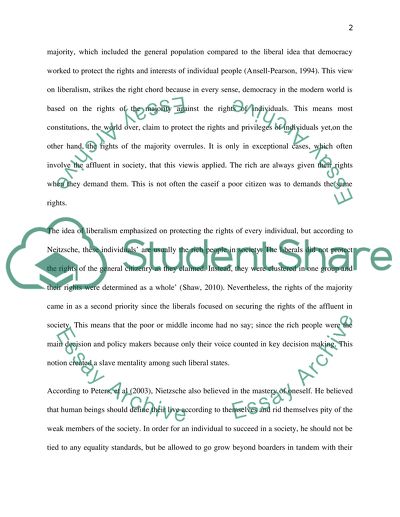Cite this document
(“Nietzsches Critique of Liberalism Essay Example | Topics and Well Written Essays - 1000 words”, n.d.)
Nietzsches Critique of Liberalism Essay Example | Topics and Well Written Essays - 1000 words. Retrieved from https://studentshare.org/philosophy/1462290-nietzsches-critique-of-liberalism
Nietzsches Critique of Liberalism Essay Example | Topics and Well Written Essays - 1000 words. Retrieved from https://studentshare.org/philosophy/1462290-nietzsches-critique-of-liberalism
(Nietzsches Critique of Liberalism Essay Example | Topics and Well Written Essays - 1000 Words)
Nietzsches Critique of Liberalism Essay Example | Topics and Well Written Essays - 1000 Words. https://studentshare.org/philosophy/1462290-nietzsches-critique-of-liberalism.
Nietzsches Critique of Liberalism Essay Example | Topics and Well Written Essays - 1000 Words. https://studentshare.org/philosophy/1462290-nietzsches-critique-of-liberalism.
“Nietzsches Critique of Liberalism Essay Example | Topics and Well Written Essays - 1000 Words”, n.d. https://studentshare.org/philosophy/1462290-nietzsches-critique-of-liberalism.


